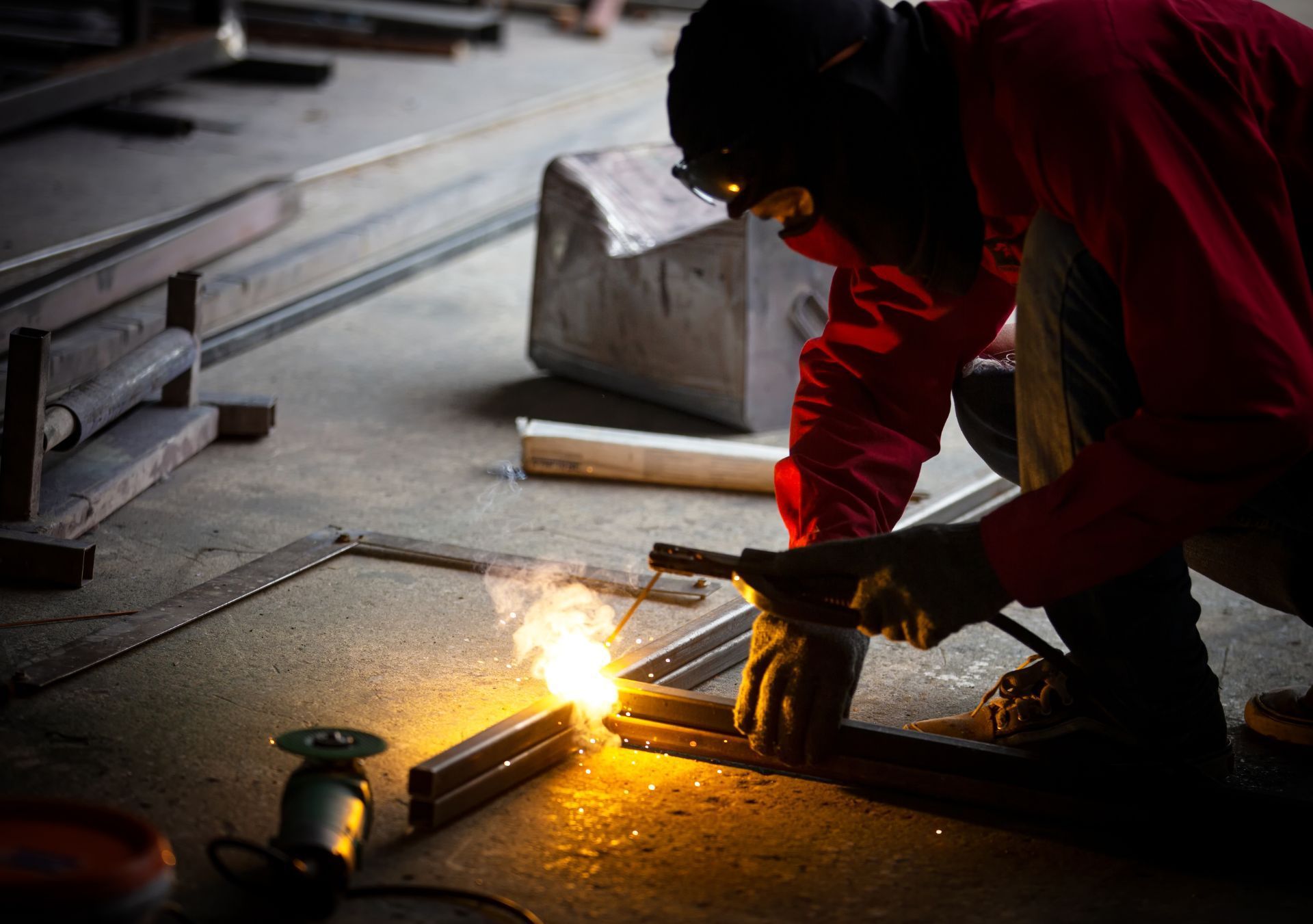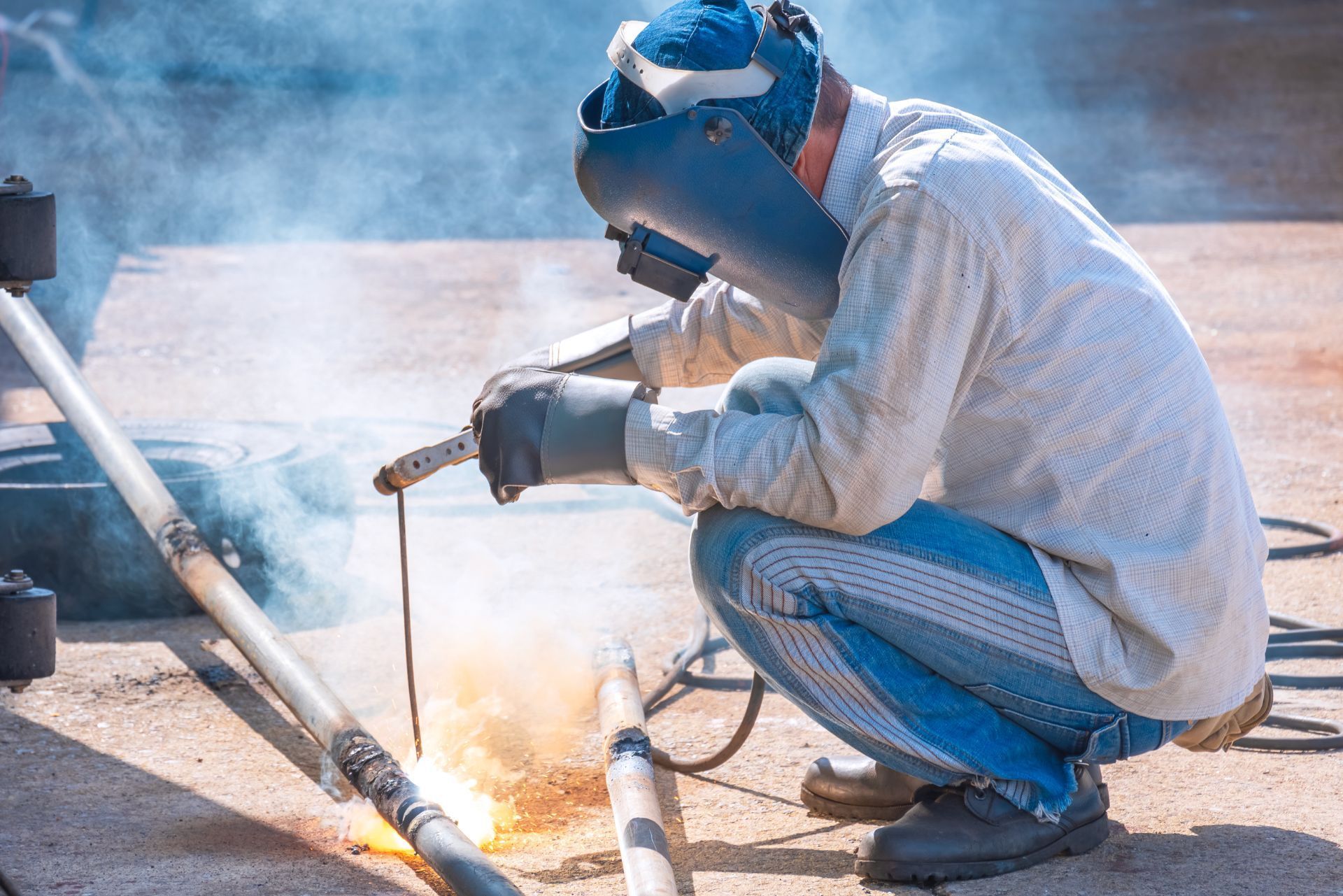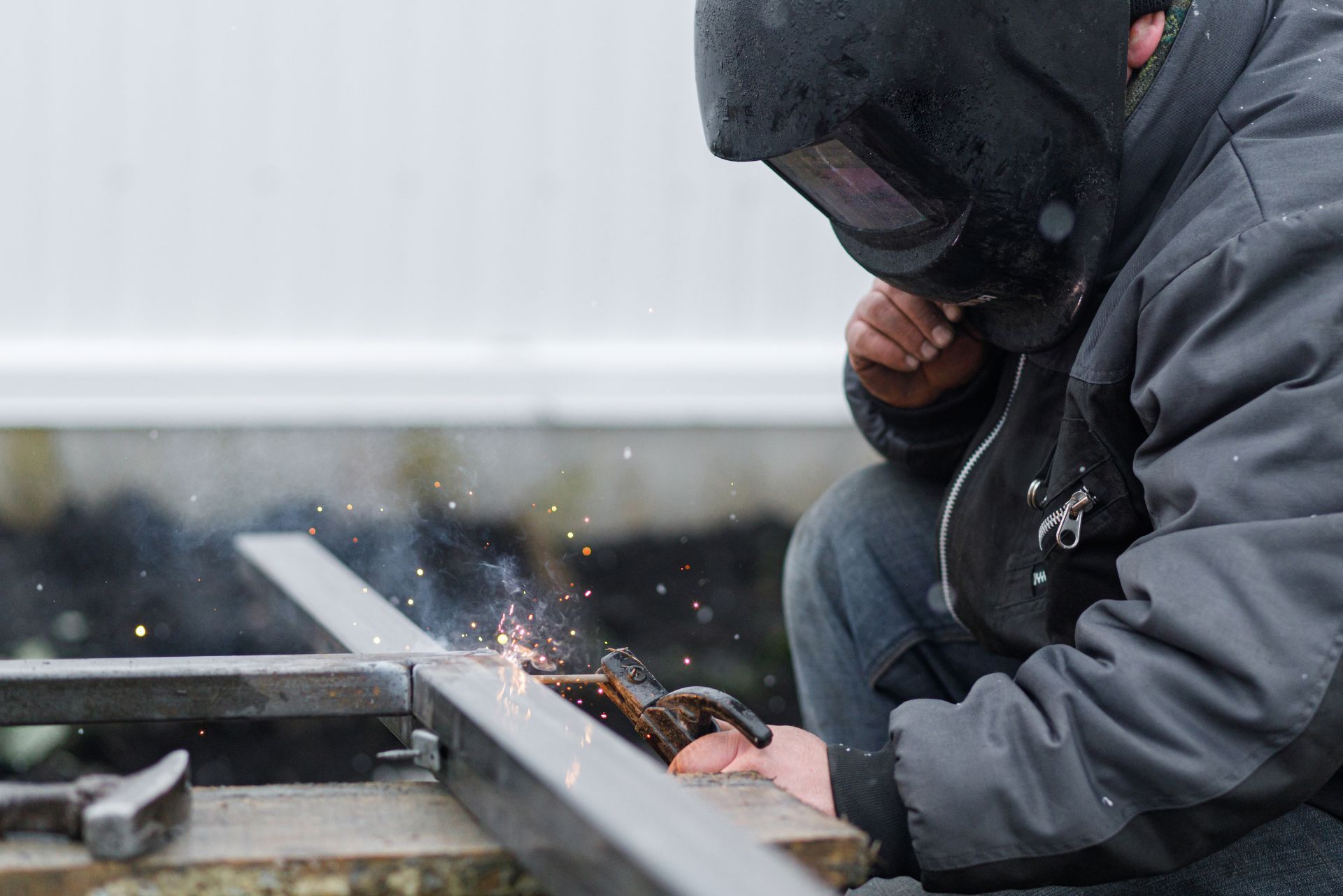Arizona Welding Contractor Insurance
See How We're Different:
or Call Us:(480) 526-3222

Most Common Business Policies
Index
Contact Us
In the world of welding, safety and security are paramount. As a welding contractor in Arizona, understanding the intricacies of insurance is essential not only for compliance but also for protecting your business from unforeseen risks. This comprehensive guide will delve into the various aspects of welding contractor insurance, including types of coverage, legal requirements, and tips for finding the right policy.
Understanding Welding Contractor Insurance
Welding contractor insurance is designed to protect businesses that provide welding services. This type of insurance covers various risks associated with the industry, including property damage, bodily injury, and equipment loss. For welding contractors, having the right insurance is not just a smart business decision; it is often a legal requirement.
Types of Coverage
There are several types of insurance coverage that welding contractors should consider. Each type addresses different risks and liabilities that could arise during the course of business operations.
- General Liability Insurance: This is the most common type of insurance for contractors. It protects against claims of bodily injury or property damage that may occur as a result of your work.
- Workers' Compensation Insurance: This coverage is crucial for businesses with employees. It provides benefits to workers who are injured on the job, covering medical expenses and lost wages.
- Commercial Auto Insurance: If your business uses vehicles for transporting equipment or employees, this insurance covers damages related to accidents involving those vehicles.
- Equipment Insurance: Welding equipment can be expensive. This insurance protects against loss or damage to your tools and machinery, ensuring you can continue operations without significant financial setbacks.
Legal Requirements in Arizona
In Arizona, certain types of insurance are mandatory for welding contractors. Understanding these legal requirements is crucial for compliance and avoiding penalties.
For instance, if you have employees, workers' compensation insurance is required by law. This coverage not only protects your workers but also shields your business from potential lawsuits related to workplace injuries. Additionally, general liability insurance, while not legally mandated, is highly recommended to protect against claims that could arise from your work.
Factors Influencing Insurance Costs
The cost of welding contractor insurance can vary significantly based on several factors. Understanding these elements can help you anticipate expenses and budget accordingly.
- Business Size: Larger businesses typically face higher insurance costs due to increased risk exposure.
- Type of Work: The nature of the welding projects you undertake can influence premiums. More hazardous work may lead to higher rates.
- Claims History: A history of previous claims can raise your insurance costs, as insurers may view your business as a higher risk.
Moreover, the location of your business can also play a significant role in determining insurance costs. Areas with higher crime rates or those prone to natural disasters may see increased premiums due to the heightened risk of theft or property damage. Additionally, the experience level of your workforce can impact your rates; businesses with highly skilled and certified welders may qualify for lower premiums, as they are generally perceived as less risky by insurance providers.
Another important factor is the coverage limits you choose. Opting for higher coverage limits can provide greater protection but will also increase your premiums. It’s essential to strike a balance between adequate coverage and affordability. Consulting with an insurance broker who specializes in contractor insurance can help you navigate these complexities and find a policy that meets your specific needs while remaining cost-effective.

Choosing the Right Insurance Policy
Selecting the right insurance policy is a critical step for any welding contractor. With numerous options available, it can be overwhelming to determine which policy best suits your needs.
Assessing Your Coverage Needs
Before purchasing insurance, it is essential to assess your specific coverage needs. Consider the following:
- Scope of Work: Evaluate the types of welding services you provide and the associated risks.
- Employee Count: The number of employees you have can impact your workers' compensation needs.
- Client Requirements: Some clients may require specific insurance coverage before awarding contracts.
Additionally, consider the geographical areas where you operate, as different states may have varying regulations regarding insurance requirements. If you work on large construction sites or in industrial settings, the potential for accidents may necessitate more comprehensive coverage. Understanding the nuances of your work environment will help you make informed decisions about the types of coverage you should prioritize.
Consulting with an Insurance Agent
Working with an experienced insurance agent can simplify the process of selecting a policy. An agent can help you navigate the complexities of insurance options and find a plan that meets your needs and budget.
When consulting with an agent, be prepared to discuss your business operations, risk factors, and any specific requirements you may have. This information will enable the agent to provide tailored recommendations. Moreover, a knowledgeable agent can also advise you on industry trends and emerging risks that may affect your coverage needs, ensuring that you stay ahead of potential liabilities.
Comparing Quotes
Once you have a clear understanding of your coverage needs, it is time to compare quotes from different insurance providers. This step is crucial for ensuring you receive the best coverage at a competitive price.
When comparing quotes, pay attention to the coverage limits, deductibles, and exclusions. A lower premium may not always be the best option if it comes with significant limitations on coverage. Additionally, consider the reputation and financial stability of the insurance companies you are evaluating. Researching customer reviews and claims handling processes can provide valuable insights into how well a provider will support you in the event of a claim, making it an essential part of your decision-making process.
Common Exclusions in Welding Contractor Insurance
While welding contractor insurance provides essential protection, it is important to be aware of common exclusions that may apply to your policy. Understanding these exclusions can help you avoid surprises when filing a claim. Being informed about what is not covered can save you from unexpected financial burdens and ensure that you are adequately prepared for any potential risks associated with your work.
Pre-Existing Conditions
Many insurance policies will not cover damages or injuries that existed prior to the policy's inception. This means that if a client has a pre-existing issue that is exacerbated by your work, the insurance may not cover it. It is crucial for contractors to conduct thorough assessments before starting any project, documenting the condition of the site and any existing damages. This proactive approach not only protects you but also helps maintain transparency with your clients, fostering trust and clear communication.
Intentional Acts
Insurance typically does not cover damages resulting from intentional acts or gross negligence. If a contractor knowingly engages in unsafe practices, any resulting claims may be denied. This exclusion serves as a reminder of the importance of adhering to safety protocols and industry regulations. By prioritizing safety training and maintaining high standards of workmanship, contractors can not only protect themselves from potential claims but also enhance their reputation in the industry, leading to more business opportunities.
Contractual Liabilities
Some policies may exclude coverage for liabilities assumed under contracts. It is important to read the fine print and understand how your contracts may impact your insurance coverage. Often, contracts can contain indemnity clauses that shift the liability burden to the contractor, which may not be covered by your insurance. To navigate these complexities, it is advisable to consult with a legal professional who specializes in construction law. They can help you draft contracts that are fair and equitable, while also ensuring that your insurance coverage aligns with the obligations you are assuming.
Environmental Hazards
Another common exclusion in welding contractor insurance is coverage for environmental hazards. Many policies will not cover damages caused by pollutants or hazardous materials that may be released during the welding process. This is particularly relevant in industries where welding is performed near sensitive environments or where hazardous materials are present. Contractors should consider obtaining additional environmental liability insurance if their work involves potential exposure to such risks, ensuring that they are fully protected against any environmental claims that may arise.
Employee Injuries
While workers' compensation insurance is designed to cover employee injuries, some welding contractor insurance policies may exclude coverage for certain types of employee-related claims. For instance, if an employee is injured while violating safety protocols or engaging in reckless behavior, the insurance may not provide coverage. It is essential for contractors to implement comprehensive safety training programs and maintain a culture of safety to minimize the risk of workplace injuries. Additionally, keeping accurate records of safety training and employee compliance can be beneficial in the event of a claim, demonstrating that the contractor took reasonable steps to prevent accidents.
Risk Management Strategies for Welding Contractors
Implementing effective risk management strategies can help minimize potential liabilities and reduce insurance costs. By proactively addressing risks, welding contractors can create a safer work environment and potentially lower their premiums.
Safety Training Programs
Investing in safety training for employees is one of the most effective ways to reduce workplace accidents. By providing proper training on equipment use, safety protocols, and emergency procedures, contractors can significantly lower the risk of injuries.
Regularly scheduled safety meetings and refresher courses can also reinforce safe practices and keep safety at the forefront of your team's operations. Additionally, incorporating hands-on training sessions that simulate real-life scenarios can better prepare employees for unexpected situations, ensuring they know how to respond effectively. Engaging employees in interactive training modules or workshops can also enhance retention of safety information, making them more likely to apply these practices on the job.
Regular Equipment Maintenance
Maintaining welding equipment is crucial for ensuring safety and efficiency. Regular inspections and preventive maintenance can help identify potential issues before they lead to accidents or equipment failure.
Keeping detailed records of maintenance activities can also demonstrate to insurers that your business takes safety seriously, which may lead to lower premiums. Furthermore, investing in modern equipment with built-in safety features can significantly reduce the likelihood of accidents. By staying updated on the latest technology and maintenance practices, welding contractors can enhance operational efficiency while ensuring a safer work environment for their teams.
Site Safety Assessments
Conducting regular site safety assessments can help identify hazards and mitigate risks. By evaluating work environments and implementing corrective measures, welding contractors can create safer job sites.
Encouraging employees to report safety concerns and fostering a culture of safety can further enhance risk management efforts. Moreover, involving employees in the assessment process can lead to valuable insights, as they are often the first to notice potential hazards. Establishing a safety committee that includes representatives from various levels of the workforce can promote collaboration and ensure that safety protocols are not only adhered to but continuously improved upon. This collective approach not only empowers employees but also cultivates a strong safety culture that prioritizes well-being across the organization.

Claims Process for Welding Contractor Insurance
Understanding the claims process is essential for any welding contractor. Knowing how to navigate this process can help ensure that claims are handled efficiently and effectively.
Reporting an Incident
In the event of an incident, the first step is to report it to your insurance provider as soon as possible. Provide detailed information about the incident, including the date, time, location, and any parties involved.
Documenting the incident with photographs and written accounts can also be beneficial when filing a claim. This documentation can serve as evidence of the circumstances surrounding the incident. Additionally, it is wise to gather witness statements if there were any bystanders present, as their accounts can further substantiate your claim. Keeping a record of any communications with clients or other contractors involved can also help clarify the situation and support your case during the claims process.
Working with Adjusters
After a claim is reported, an insurance adjuster will typically be assigned to investigate the incident. It is important to cooperate fully with the adjuster and provide any requested documentation or information.
Adjusters will assess the situation and determine the validity of the claim based on the policy coverage. Understanding the adjuster's role can help streamline the process and ensure a fair evaluation. They may conduct interviews, review your documentation, and even visit the site of the incident to gather additional evidence. Being prepared to answer questions and provide context about your work practices can facilitate a smoother investigation and potentially expedite the resolution of your claim.
Follow-Up and Resolution
Once the claim has been assessed, the insurance company will communicate its decision regarding coverage and any compensation. If the claim is approved, the insurer will outline the next steps for receiving payment.
If a claim is denied, it is essential to understand the reasons for the denial. Contractors have the right to appeal the decision, and working with an insurance agent can provide guidance on how to proceed. It is also beneficial to review your policy thoroughly to identify any specific exclusions or limitations that may have influenced the adjuster's decision. Engaging a legal professional who specializes in insurance disputes can also be a strategic move if you believe your claim was unjustly denied, as they can assist in navigating the complexities of the appeal process and advocate on your behalf.
Conclusion
Welding contractor insurance is a vital component of running a successful welding business in Arizona. By understanding the types of coverage available, legal requirements, and strategies for minimizing risks, contractors can protect their businesses and ensure compliance.
Choosing the right insurance policy requires careful consideration and consultation with experienced professionals. By taking proactive steps to manage risks and understanding the claims process, welding contractors can secure their livelihoods and focus on delivering quality services to their clients.
In an industry where safety and reliability are paramount, having the right insurance coverage is not just a necessity; it is a commitment to excellence and professionalism.
